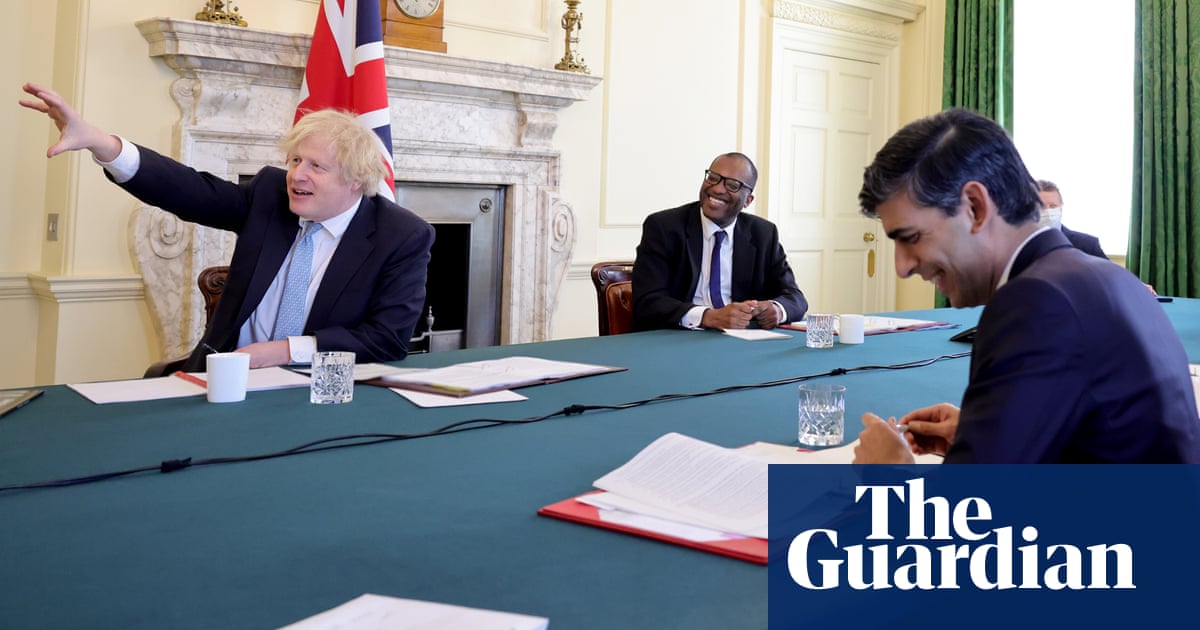
When Boris Johnson announced that pubs and hairdressers could reopen from 4 July, his familiar optimistic bounce re-emerged for the first time in weeks.
As the self-confessed scourge of “doomsters and gloomsters”, the prime minister visibly loathed having to tell the nation in March their local would be shut down by the government – and enjoyed telling them “bustle” can now return to the high street.
“A new but cautious optimism is palpable,” he announced, though he also urged the public to deploy their common sense as they venture out again.
With the virus now more under control – at least for now – he will use a major speech next week to switch the focus back to the “people’s priorities” of December’s Tory manifesto: including a rash of infrastructure projects aimed at “levelling up” Britain.
“We’re going to be building loads of stuff,” said one Whitehall source.
Some of the priorities, including a major boost to road-building, and a series of green investments such as electric vehicle charging, were already announced by Rishi Sunak in March.
But Johnson is expected to push ahead with other plans, including building more of the 40 new hospitals promised during the election campaign – and potentially also handing schools pots of money to be spent on improving their buildings.
With an urgent need to create jobs, as sectors hardest hit by the shutdown accelerate layoffs, relatively small-scale projects can be started much more quickly than the high-profile cable cars and bridges Johnson has tended to prefer in the past.
Environmental projects such as refurbishing homes to make them more energy efficient – lagging lofts, for example – also create large numbers of jobs, rapidly.
And they have the advantage of being geographically well-spread, giving Tory MPs up and down the country tangible benefits to point to in the run-up to the 2024 general election.
Conservative backbenchers, including even some from the 2019 intake who owe their seats to Johnson, have grumbled in recent weeks about what they regard as shaky leadership by a centralised and insular No 10 operation.
Many would cheer the prospect of increased investment in grassroots projects.
Handing cash to schools would also have the advantage of reinstating education as a clear priority, after Johnson was stung by criticisms of his government’s failure to get more children back to school.
Sunak is expected to make his own contribution to setting the government back on track later in July, when he holds what the Treasury is keen to insist will not be a budget, but simply a financial statement.
He is under pressure from Labour, which has been hammering home the mantra that a “budget for jobs” is urgently needed.
Sunak told the Yorkshire Post earlier this month that he was concerned about the fate of young people unable to find a job because of the crisis, and was looking at the “full range of things” he could do to help them.
“There are different paths into work, and apprenticeships are a great path into it, and how we make sure we support companies to create those kinds of opportunities for young people, and for those who are going to be newly unemployed as a result of all of this. The full range of things, I’m having a look at.”
A fan of bold political gestures, Johnson has even suggested the government could promise an apprenticeship for every young person.
“In dealing with the fallout of coronavirus, we will be as activist and interventionist as we have been during the lockdown,” the prime minister has said. “Young people, I believe, should be guaranteed an apprenticeship.”
Such a promise would echo the “young person’s guarantee” introduced by Labour in the downturn that followed the global financial crisis, which offered 18- to 24-year olds training or a job, after they had been out of work for six months.
But creating sufficient jobs in the short-term, in an economy undergoing significant changes as businesses and families adjust to the new normal, is a formidable challenge.
As for kick-starting the recovery from the Covid-19 crash, one widely reported proposal has been an across-the-board cut in VAT.
Conscious that it is costly and poorly targeted, Treasury insiders stress no decision has yet been made, and highlight encouraging signs that consumer spending will bounce back strongly once more of the economy reopens.
But a VAT cut targeted at specific sectors – hard-hit tourism, for example – is an alternative approach.
Sunak could also opt to evolve the vast job retention scheme, which is due to close in October, into a smaller-scale programme of wage subsidies, perhaps topping up the pay of those who can be brought back into work part-time.
Johnson knows his government will be judged harshly if next weekend’s risky package of reopenings – from museums to bingo halls – sparks a second wave of the virus.
But with the economy already likely to be deep in recession, Downing Street also believes the bullishness that helped get Johnson elected is the right approach for the tough months ahead.












